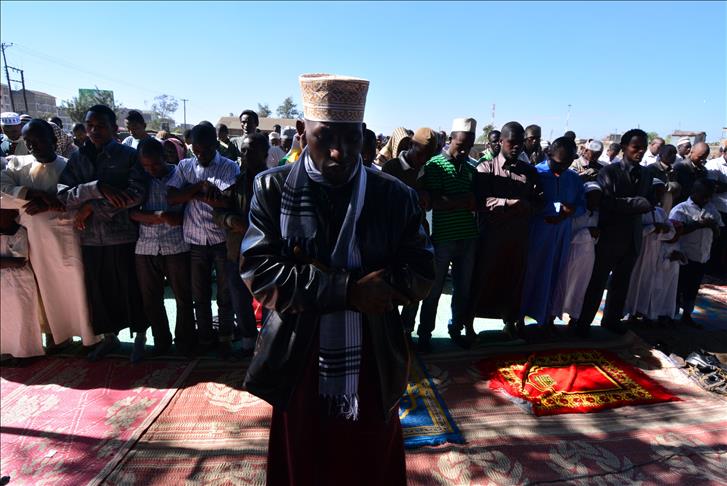
LUANDA
By Hassan Isilow
Muslims in Angola have denied any blanket closure of their mosques in the southern African country, hoping that the authorities would soon recognize Islam.
"The Angolan government has not taken any decision to close mosques," Sheikh Uthman Ibn Zaid, an imam of the Masjid Nur al-Islam in the Angolan capital Luanda, told Anadolu Agency over the phone.
Unconfirmed media reports suggested earlier that Angola had decided not to recognize Islam and to close all Muslim places of worship in the country.
"We have been in constant contact with the culture and religious affairs director and he has confirmed to us that no such decision had been taken by the government," said Sheikh Ibn Zaid.
He insisted that any decision to close a particular mosque is a temporary decision related to regulating unrecognized places of worship.
"This applies to all places of worship, including churches," he said.
Ibn Zaid, who identified himself as the second ranking imam in Angola, cited the brief closure of a mosque in Huambo, the second largest city in Angola, last week.
"The mosque was closed on Thursday and the director of culture called to assure me that it was reopened on Friday," he said, falling short of explaining why the mosque was initially closed.
"God willing, closed mosques will be reopened," he said.
The Muslim leader also confirmed that a couple of mosques have been destroyed in the African country.
"Some Muslims built some mosques on unauthorized lands owned by the government or army," he noted.
"Would you let someone come and build a room inside your home? The same applies to the Angolan government. Every country protects its sovereignty."
Sheikh Zubair Issa, a Zambian Muslim scholar who travels regularly to Angola to perform Dawa’ah (Islamic propagation), confirmed that the destroyed mosques had been constructed on land not gazetted for a place of worship.
"It’s true the mosques were brought down, but the reason is because the mosques were built on land that was not zoned for places of worship," he told AA on phone from Zambia.
He said he had spoken to a number of colleagues in Angola who assured him that Muslims were not being witch hunted.
According to the CIA fact book, Zambia has a population of nearly 18.5 million.
The fact book says 47 percent of the population subscribes to indigenous, 38 percent are Roman Catholics and 15 percent are Protestants.
The CIA fact book gives no mention about the number of Muslims in the country.
But some unconfirmed estimates put the number at nearly 90,000.
-Recognize Islam-
Al-Hadji Jadi, a member of a Muslim NGO in Angola called Islamic Wings, also denied a blanket mosque closure decision.
"I just performed my prayers at Masjid Nur al-Islam," he told AA over the phone from the capital Luanda.
"I have heard the media reports, but all I can say is that Muslims in Luanda are safe," he added. "No one has closed our mosques."
Imam Ibn Zaid, who has a scholarly degree from the Islamic University, insisted that the Angolan government was not against Islam.
"If the government was against Islam they would not have left this [Huambo] mosque," he told AA.
"The government has not closed mosques. It has a good intention to recognize Islam."
The Muslim leader said the government was trying to regulate more than 200 religions being practiced in Angola.
"We are hoping it will recognize Islam before the end of this year."
Imam Ibn Zaid recalled coming to Angola in the late 1980s and the early 1990s.
"There was no Islam here," he said.
"The Angolan government allowed us to build mosques…Today we have more than 130 mosques countrywide."
No official from the Angolan government was immediately available to comment on the report.
englishnews@aa.com.tr
Anadolu Agency website contains only a portion of the news stories offered to subscribers in the AA News Broadcasting System (HAS), and in summarized form. Please contact us for subscription options.

